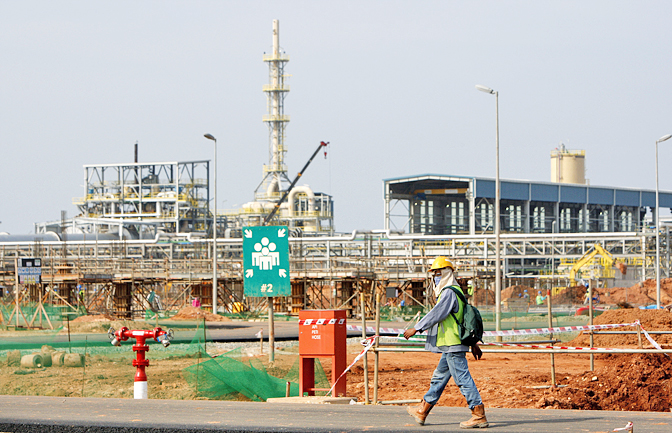KUALA LUMPUR (AFP) – Environmentalists criticised Malaysia yesterday for extending the operating licence of an Australian mining firm, which allows it to import rare earth metals containing radioactive material until March 2026.
Rare earths are a crucial component used in products including mobile phones, hybrid cars and flat-screen televisions, but there are only a few producers outside of China.
Mageswari Sangaralingam of non-governmental organisation Friends of the Earth Malaysia expressed shock at the government’s U-turn to allow Lynas Rare Earths to proceed with the cracking and leaching activity, which produces radioactive waste.
“We are indeed outraged over the government’s reversal of the decision,” she told AFP yesterday.
“After 10 years with Lynas’ full commercial production, we have been landed with a massive environmental problem.”

Previously Lynas was only allowed to import and process lanthanide concentrate which contains radioactive material until January 2024.
But Science and Technology Minister Chang Lih Kang announced on Tuesday that the extension would also allow Lynas to process rare earths, on the condition the miner conducts “thorium extraction” to remove radioactive waste.
The Lynas site, located near the city of Kuantan in central Pahang state, began operations in 2012.
The government said Lynas has produced over a million metric tonnes of radioactive waste since that year, which is being stored near the plant.
Chang also said Lynas must commit one per cent of its gross revenue, up from 0.5 per cent, to research and development including the removal of radioactive material from residues.
Lynas Chief Executive Officer and Managing Director Amanda Lacaze said Malaysia’s decision would provide a strong foundation to develop the local rare earths industry.
“As the leading producer of rare earths outside of China, Malaysia plays an important role in the global rare earths supply chain,” she said on Tuesday.


